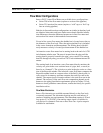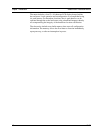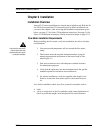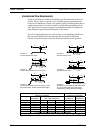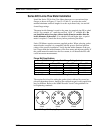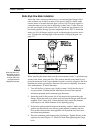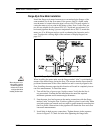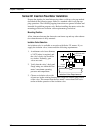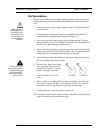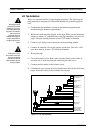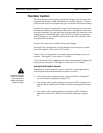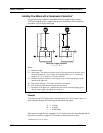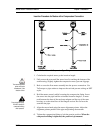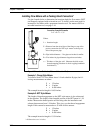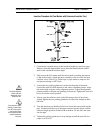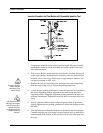
Series 220/221 Instruction Manual Chapter 2 Installation
Cold Tap Guidelines
Refer to a standard code for all pipe tapping operations. The following tap-
ping instructions are general in nature and intended for guideline purposes
only.
Caution!
When using toxic or
corrosive gases, purge
the line with inert gas
for a minimum of four
hours at full gas flow
before installing the
flow meter.
1. Turn off the flow of process gas, liquid or steam. Verify that the line is
not pressurized.
2. Confirm that the installation site meets the minimum upstream and
downstream pipe diameter requirements. See Figure 2-1.
3. Use a cutting torch or sharp cutting tool to tap into the pipe. The pipe
opening must be at least 1.875 inches in diameter. (Do not attempt to in-
sert the sensor probe through a smaller hole.)
4. Remove all burrs from the tap. Rough edges may cause flow profile dis-
tortions that could affect flow meter accuracy. Also, obstructions could
damage the sensor assembly when inserting into the pipe.
5. After cutting, measure the thickness of the cut-out and record this num-
ber for calculating the insertion depth.
Warning!
All flow meter connec-
tions, isolation valves and
fittings for cold tapping
must have the same or
higher pressure rating as
the main pipeline.
6. Weld the flow meter pipe connec-
tion on the pipe. Make sure this
connection is within ± 5° perpen-
dicular to the pipe centerline.
7. Install the isolation valve (if
used).
8. When welding is complete and all fittings are installed, close the isola-
tion valve or cap the line. Run a static pressure check on the welds. If
pressure loss or leaks are detected, repair the joint and re-test.
9. Connect the meter to the pipe process connection.
10. Calculate the sensor probe insertion depth as described on the following
pages. Insert the sensor probe into the pipe.
IM-22 2-7



